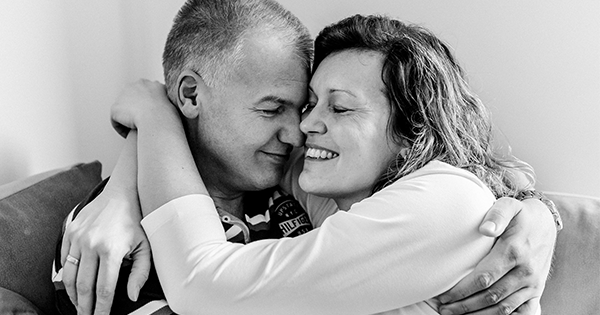Gratitude is proven to help boost the human being’s physical and mental health. According to studies and researches on gratitude[1]Article: Giving thanks can make you happier, happiness levels are possibly increased by 25%[2]Article: Practicing gratitude can increase happiness by 25% with the practice of gratitude. It serves as a mental health promoter, including the adequate quality and quantity of sleep. The outcome of the studies has shown improvement in overall health with the use of gratitude practices such as: writing a thank you letter to someone, making a call to say thanks, writing a gratitude list for all the blessings in your life, keeping a gratitude journal, and offering prayers regularly.
A Research Experiment On Gratitude
Three different groups of participants were included in a gratitude experiment by psychologists Dr. Robert A. Emmons of the University of California and Dr. Michael E. McCullough of the University of Miami. They performed diverse tasks over three weeks. One of the groups didn’t write anything; another group wrote about their negative experiences, and the third group wrote a gratitude letter for another person. All of the three groups’ participants were provided with counseling sessions. After the study duration ends, they were all assessed for their mental health. Only the group who performed the gratitude task was scored well on a mental health scale. In this manner, the researchers showed the effect of gratitude and its combined impact on mental health with counseling services.[3]Counting Blessings Versus Burdens: An Experimental Investigation of Gratitude and Subjective Well-Being in Daily Life
What Is Gratitude?
To understand gratitude, the concepts to a close sense and meaning are appreciation and feeling of thankfulness. Suitable examples of the act are viewing the glass half full rather than half empty, being grateful for whatever blessings you have. Focus on the bright side instead of the dark one, ignore the passing clouds. Gratitude works as a conscious choice to shift one’s perspective towards life. It takes away one’s view from the lack of something to abundance and leads a person from complaints to praise. It provides a person the peace that allows them to feel powerful[4]Article: 14 health benefits of practicing gratitude according to science all the time and energetic in all the circumstances.
Gratitude and Brain Functioning
The research data has been increasing about the effects of gratitude on brain functioning. It involves the claim that it rewires the frontal lobe, which is responsible for functions like decision-making, problem-solving, memory, and thinking patterns. Other effects are seen that include a decrease in cortisol levels that induces stress and increase the production of beneficial neurochemicals. It also manages brain activation patterns[5]Research: The neural basis of human social values: evidence from functional MRI and changes in the heart rate.
Gratitude For Emotions
One of the changes that take place in someone’s brain due to gratitude is the improvement in the activity of the “feeling good” chemical, a neurotransmitter called dopamine. This chemical is responsible for rewarding and seeking pleasure. The circuits in the brain are supplied with it to enhance memory and reaction time. Dopamine is also a booster for physical activity and interest in daily activities. Due to the relation of this chemical in influencing motivation and focus, a person works well and feels well when the supply of this chemical is sufficient, and gratitude is one of the potential reasons to improve this chemical’s supply.
Effects Of Gratitude On Mental Health
Studies have shown that impaired memory and physical moments related disorders are managed well when gratitude is practiced in daily routine. Positive thinking is the cure for all mental health disorders because they all emerge from negative thoughts and emotions[6]Research: In vivo measurements of brain trapping of C-labelled alpha-methyl-L-tryptophan during acute changes in mood states. Again, the dopamine activity in the brain stem region elicits the enjoyment in social interactions. Secondly, another brain chemical called serotonin aids a person to feel the positive aspects of one’s life more often. This means the impact of negative events lowers down to a great extent. The neural activity through gratitude improves expression.
Gratitude Improves Thinking
Just acknowledging the presence of something or someone in life is useful for shifting focus from negative feelings to positive. The engagement of gratitude disconnects the person’s mind from ruminating thoughts and toxic behaviors. The intention of looking for things that are only helpful in the acceptance of good feelings is such a major act that gratitude induces in the thinking patterns of a person. A simple small expression of gratitude daily and in the period of stress, even if implicit, may do wonders for a person’s mental and physical health.
Thought processes play a crucial role to facilitate the emotional regulation and direct towards the overcoming of challenges. Sharing gratitude with others is also very good to spread this positivity. Social interactions improve actively through participation in gratitude as a group for a happier and satisfied life. The effect may not take place immediately but slowly, and gradually the change occurs, and it seems beneficial on a daily, weekly and monthly basis. It becomes even more noticeable when the brain is fully trained and the person is motivated to show more and more interest in the daily gratitude activities. A habit of positive thinking is encouraged this way as the outcome.
Practicing Gratitude
Cultivation of gratitude in mind every day is a healthy attitude. Some of the ways to quickly begin this practice are:
- Mentally recalling someone or something you are grateful for.
- Write down the situations, events, people, things, time, and days for which you are grateful.
- Write down a gratitude message, email, or letter for someone and send it to him/her or hand it over personally in the case of a letter.
- Say thank you to anyone, to god, or to the universe for all the life you have lived, meditate for the present moment and be aware of the blessings you already have in your awareness.
- Appreciate others for anything they have done well for you or others in any way.
- Try to spend some time each day counting your blessings.
- Volunteer for the purpose of helping others.
- Don’t be picky; try to appreciate everything.
- Practice mindfulness in stressful times. Learn more about how to tame your mind in stressful times.
- Pray to cultivate gratitude.
- Spend time with loved ones.

Conclusion
Gratitude is expressed in any form. The effects on neural activity are reported to have a deep and long-lasting impact and numerous positive outcomes[7]Article: The effects of gratitude expression on neural activity. The change is visible and can be measured in a variety of ways. Let’s try today one of the mentioned gratitude practices above, and don’t forget to share this article with your friends and family members to spread the sparkles of gratitude with your loved ones! Thank you for sharing this article ❤
References



